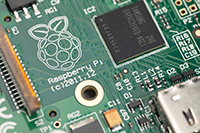 Those who know me will know that I like to speak about the remarkable impact of Moore’s Law. In the words of Don Tappan at Intel, computing has become infinitely fast and vanishingly cheap.
Those who know me will know that I like to speak about the remarkable impact of Moore’s Law. In the words of Don Tappan at Intel, computing has become infinitely fast and vanishingly cheap.
What Gordon Moore said, over 50 years ago, was that as you put more transistors on an integrated circuit, the cost per transistor went down. But, so did the manufacturing yield. So, there is a sweet spot that minimizes the manufactured cost per transistor. Moore expected that technology improvements would drive that optimum in favor of more and more transistors. Here a discussion and links to the original paper: https://en.wikipedia.org/wiki/Moore%27s_law.
It was only later that people, including Moore, tried to apply a time scale, or doubling time, to computing power. For technical computing, it turns out that computing capability has doubled every 18 months for nearly 55 years! In addition, Moore’s technical statement became a business imperative: Computer makers used several technologies, not just transistor density, to enable what we now call “Moore’s Law”.
The impact has been enormous. We can now compute in 1 second what would have taken those people engineering the Apollo moon program over 1,700 years to do!
There is another perspective on this:
I just bought a Raspberry Pi which is a computer on a circuit board about the size of a credit card. The whole thing is about as big as a pack of cards in a little case with its USB ports and other connections. It cost US$35.
When I was at GM Research Laboratories in the early 1980s, we bought a Cray-1 supercomputer for about US$40 million. This Raspberry Pi is about 20 times as capable as that Cray-1. If you multiply that out and include an inflation factor (1983 – 2018) of 2.5, the Raspberry Pi is a resource that in the 1980s would have cost about two billion (of today’s) dollars!
So, computing is now billions of times faster, and billions of times cheaper than it was 50 years ago.
Keith
